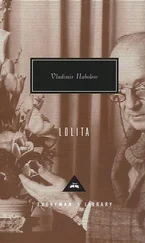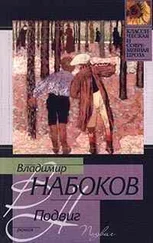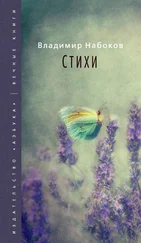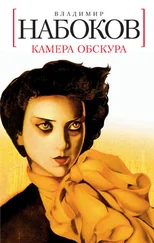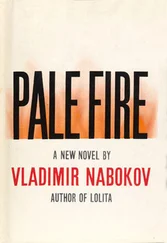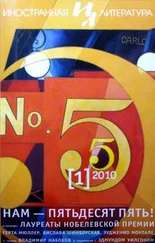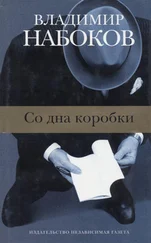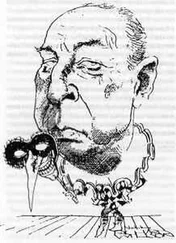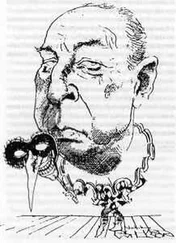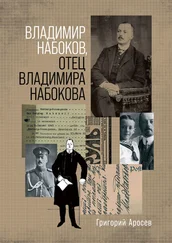Владимир Набоков - [Proofed to line 1994]
Здесь есть возможность читать онлайн «Владимир Набоков - [Proofed to line 1994]» — ознакомительный отрывок электронной книги совершенно бесплатно, а после прочтения отрывка купить полную версию. В некоторых случаях можно слушать аудио, скачать через торрент в формате fb2 и присутствует краткое содержание. Жанр: Классическая проза, на английском языке. Описание произведения, (предисловие) а так же отзывы посетителей доступны на портале библиотеки ЛибКат.
- Название:[Proofed to line 1994]
- Автор:
- Жанр:
- Год:неизвестен
- ISBN:нет данных
- Рейтинг книги:3 / 5. Голосов: 1
-
Избранное:Добавить в избранное
- Отзывы:
-
Ваша оценка:
- 60
- 1
- 2
- 3
- 4
- 5
[Proofed to line 1994]: краткое содержание, описание и аннотация
Предлагаем к чтению аннотацию, описание, краткое содержание или предисловие (зависит от того, что написал сам автор книги «[Proofed to line 1994]»). Если вы не нашли необходимую информацию о книге — напишите в комментариях, мы постараемся отыскать её.
[Proofed to line 1994] — читать онлайн ознакомительный отрывок
Ниже представлен текст книги, разбитый по страницам. Система сохранения места последней прочитанной страницы, позволяет с удобством читать онлайн бесплатно книгу «[Proofed to line 1994]», без необходимости каждый раз заново искать на чём Вы остановились. Поставьте закладку, и сможете в любой момент перейти на страницу, на которой закончили чтение.
Интервал:
Закладка:
Two minutes pass. Life is hopeless, afterlife heartless. Hazel is heard quietly weeping in the dark. John Shade lights a lantern. Sybil lights a cigarette. Meeting adjourned.
The light never came back but it gleams again in a short poem "The Nature of Electricity", which John Shade had sent to the New York magazine _The Beau and the Butterfly_, some time in 1958, but which appeared only after his death:
The dead, the gentle dead - who knows?
In tungsten filaments abide,
And on my bedside table flows
Another man's departed bride.
And maybe Shakespeare floods a whole
Town with innumerable lights,
And Shelley's incandescent soul
Lures the pale moths of starless nights.
Streetlamps are numbered; and maybe
Number nine-hundred-ninety-nine
(So brightly beaming through a tree
So green) is an old friend of mine.
And when above the livid plain
Forked lightning plays, therein may dwell
The torments of a Tamerlane,
The roar of tyrants torn in hell.
Science tells us, by the way, that the Earth would not merely fall apart, but vanish like a ghost, if Electricity were suddenly removed from the world.
Lines 347-348: She twisted words
One of the examples her father gives is odd. I am quite sure it was I who one day, when we were discussing "mirror words," observed (and I recall the poet's expression of stupefaction) that "spider" in reverse is "redips", and "T.S. Eliot", "toilest." But then it is also true that Hazel Shade resembled me in certain respects.
Lines 367-370: then - pen, again - explain
In speech John Shade, as a good American, rhymed "again" with "pen" and not with "explain." The adjacent position of these rhymes is curious.
Line 376: poem
I believe I can guess (in my bookless mountain cave) what poem is meant; but without looking it up I would not wish to name its author. Anyway, I deplore my friend's vicious thrust at the most distinguished poets of his day.
Lines 376-377: was said in English Lit to be
This is replaced in the draft by the more significant - and more tuneful - variant:
the Head of our Department deemed
Although it may be taken to refer to the man (whoever he was) who occupied this post at the time Hazel Shade was a student, the reader cannot be blamed for applying it to Paul H., Jr., the fine administrator and inept scholar who since 1957 headed the English Department of Wordsmith College. We met now and then (see Foreword and note to line 894) but not often. The Head of the Department to which I belonged was Prof. Nattochdag - "Netochka" as we called the dear man. Certainly the migraines that have lately tormented me to such a degree that I once had to leave in the midst of a concert at which I happened to be sitting beside Paul H., Jr., should not have been a stranger's business. They apparently were, very much so. He kept his eye on me, and immediately upon John Shade's demise circulated a mimeographed letter that began:
Several members of the Department of English are painfully concerned over the fate of a manuscript poem, or parts of a manuscript poem, left by the late John Shade. The manuscript fell into the hands of a person who not only is unqualified for the job of editing it, belonging as he does to another department, but is known to have a deranged mind. One wonders whether some legal action, etc.
"Legal action," of course, might be taken by somebody else too. But no matter; one's just anger is mitigated by the satisfaction of foreknowing that the engagé gentleman will be less worried about the fate of my friend's poem after reading the passage commented here. Southey liked a roasted rat for supper - which is especially comic in view of the rats that devoured his Bishop.
Line 384: book on Pope
The title of this work which can be found in any college library is Supremely Blest, a phrase borrowed from a Popian line, which I remember but cannot quote exactly. The book is concerned mainly with Pope's technique but also contains pithy observations on "the stylized morals of his age."
Lines 385-386: Jane Dean, Pete Dean
The transparent pseudonyms of two innocent people. I visited Jane Provost when passing through Chicago in August. I found her still unmarried. She showed me some amusing photos of her cousin Peter and his friends. She told me - and I have no reason to disbelieve her words - that Peter Provost (whom I desired very very much to meet, but he was, alas, selling automobiles in Detroit) might have exaggerated a wee bit, but certainly did not fib, when explaining that he had to keep a promise made to one of his dearest fraternity friends, a glorious young athlete whose "garland" will not, one hopes, be "briefer than a girl's". Such obligations are not to be treated lightly or disdainfully. Jane said she had tried to talk to the Shades after the tragedy, and later had written Sybil a long letter that was never acknowledged. I said, displaying a bit of the slang I had recently started to master: "You are telling me!"
Line 403-404: it's eight fifteen (And here time forked)
From here to line 474 two themes alternate in a synchronous arrangement: television in the Shades' parlor and the replay, as it were, of Hazel's (already adumbrated) actions from the moment Peter met his blind date (406-407) and apologized for having to leave in a hurry (426-428) to Hazel's ride in the bus (445-447 and 457-460), ending with the watchman's finding her body (474-477). I have italicized the Hazel theme.
The whole thing strikes me as too labored and long, especially since the synchronization device has been already worked to death by Flaubert and Joyce. Otherwise the pattern is exquisite.
Line 408: A male hand
On July 10, the day John Shade wrote this, and perhaps at the very minute he started to use his thirty-third index card for lines 406-416, Gradus was driving in a hired car from Geneva to Lex, where Odon was known to be resting, after completing his motion picture, at the villa of an old American friend, Joseph S. Lavender (the name hails from the laundry, not from the laund). Our brilliant schemer had been told that Joe Lavender collected photographs of the artistic type called in French ombrioles. He had not been told what exactly these were and dismissed them mentally as "lampshades with landscapes." His cretinous plan was to present himself as the agent of a Strasbourg art dealer and then, over drinks with Lavender and his house guest, endeavor to pick up clues to the King's whereabouts. He did not reckon with the fact that Donald Odon with his absolute sense of such things would have immediately deduced from the way Gradus displayed his empty palm before shaking hands or made a slight bow after every sip, and other tricks of demeanor (which Gradus himself did not notice in people but had acquired from them) that wherever he had been born he had certainly lived for a considerable time in a low-class Zemblan environment and was therefore a spy or worse. Gradus was also unaware that the ombrioles Lavender collected (and I am sure Joe will not resent this indiscretion) combined exquisite beauty with highly indecent subject matter - nudities blending with fig trees, oversize ardors, softly shaded hinder cheeks, and also a dapple of female charms.
From his Geneva hotel Gradus had tried to get Lavender on the telephone but was told he could not be reached before noon. By noon Gradus was already under way and telephoned again, this time from Montreux. Lavender had been given the message and would Mr. Degré drop in around tea time. He luncheoned in a lakeside cafe, went for a stroll, asked the price of a small crystal giraffe in a souvenir shop, bought a newspaper, read it on a bench, and presently drove on. In the vicinity of Lex he lost his way among steep tortuous lanes. Upon stopping above a vineyard, at the rough entrance of an unfinished house, he was shown by the three index fingers of three masons the red roof of Lavender's villa high up in the ascending greenery on the opposite side of the road. He decided to leave the car and climb the stone steps of what looked like an easy short cut. While he was trudging up the walled walk with his eye on the rabbit foot of a poplar which now hid the red roof at the top of the climb, now disclosed it, the sun found a weak spot among the rain clouds and next moment a ragged blue hole in them grew a radiant rim. He felt the burden and the odor of his new brown suit bought in a Copenhagen store and already wrinkled. Puffing, consulting his wrist watch, and fanning himself with his trilby, also new, he reached at last the transverse continuation of the looping road he had left below. He crossed it, walked through a wicket and up a curving gravel path, and found himself in front of Lavender's villa. Its name, Libitina, was displayed in cursive script above one of the barred north windows, with its letters made of black wire and the dot over each of the three i's cleverly mimicked by the tarred head of a chalk-coated nail driven into the white facade. This device, and the north-facing window grates, Gradus had observed in Swiss villas before, but immunity to classical allusion deprived him of the pleasure he might have derived from the tribute that Lavender's macabre joviality had paid the Roman goddess of corpses and tombs. Another matter engaged his attention: from a corner casement came the sounds of a piano, a tumult of vigorous music which for some odd reason, as he was to tell me later, suggested to him a possibility he had not considered and caused his hand to fly to his hip pocket as he prepared to meet not Lavender and not Odon but that gifted hymnist, Charles the Beloved. The music stopped as Gradus, confused by the whimsical shape of the house, hesitated before a glassed-in porch. An elderly footman in green appeared from a green side door and led him to another entrance. With a show of carelessness not improved by laborious repetition, Gradus asked him, first in mediocre French, then in worse English, and finally in fair German, if there were many guests staying in the house; but the man only smiled and bowed him into the music room. The musician had vanished. A harplike din still came from the grand piano upon which a pair of beach sandals stood as on the brink of a lily pond. From a window seat a gaunt jet-glittering lady stiffly arose and introduced herself as the governess of Mr. Lavender's nephew. Gradus mentioned his eagerness to see Lavender's sensational collection: this aptly defined its pictures of lovemaking in orchards, but the governess (whom the King had always called to her pleased face Mademoiselle Belle instead of Mademoiselle Baud) hastened to confess her total ignorance of her employer's hobbies and treasures and suggested the visitor's taking a look at the garden: "Gordon will show you his favorite flowers" she said, and called into the next room "Gordon!"
Читать дальшеИнтервал:
Закладка:
Похожие книги на «[Proofed to line 1994]»
Представляем Вашему вниманию похожие книги на «[Proofed to line 1994]» списком для выбора. Мы отобрали схожую по названию и смыслу литературу в надежде предоставить читателям больше вариантов отыскать новые, интересные, ещё непрочитанные произведения.
Обсуждение, отзывы о книге «[Proofed to line 1994]» и просто собственные мнения читателей. Оставьте ваши комментарии, напишите, что Вы думаете о произведении, его смысле или главных героях. Укажите что конкретно понравилось, а что нет, и почему Вы так считаете.

